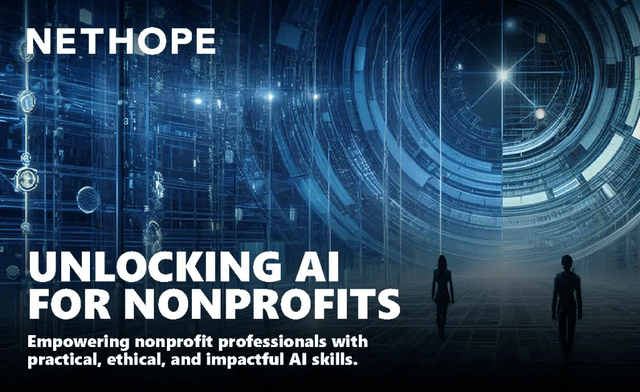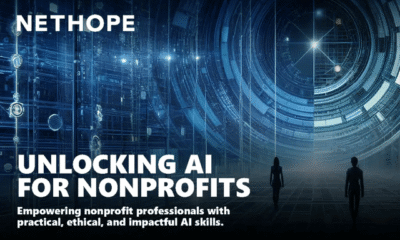AI has captured global attention and is transforming every sector of society. But what does that transformation look like for the nonprofit sector? Many existing AI skilling efforts assume technical fluency, corporate resources, and commercial use cases – far from the realities faced by most nonprofit teams.
That’s why NetHope, with support from Microsoft, created Unlocking AI for Nonprofits, a free, CPD-certified course series built for the sector, by the sector. Instead of pushing generic tools or abstract theory, the series meets nonprofit professionals where they are, addressing real barriers like limited capacity, trust in new tools, and questions about ethical use.
There are four learning pathways, designed to meet learners where they are:
- AI Basics – An introduction for those new to AI
- Applications of Generative AI – Practical tools for day-to-day nonprofit tasks
- Advanced Applications: Microsoft Copilot and Beyond – For teams already exploring Copilot
- Responsible Use of AI – Grounding in ethics, safety, and inclusion
From understanding how bias works in algorithmic decisions to exploring how AI can support donor reporting or field logistics, the content is designed with one goal: to make AI work for nonprofits.
All courses are free, self-paced, and open through August 31.
Who this is for?
Not sure where to start? Here’s a quick guide:
- Curious about AI but don’t know where to begin? → Start with AI Basics
- Already experimenting with ChatGPT and want to apply it at work? → Try Applications of Generative AI
- Using Microsoft Copilot and ready to roll it out across your team? →Explore Advanced Applications
- Concerned about ethical risks and responsible AI use? → Begin with Responsible Use of AI
What will you gain?
- Four nonprofit-specific learning pathways
- A short AI readiness assessment to help you plan your AI implementation
- Real-world use cases and toolkits co-developed with nonprofit professionals
- A CPD certificate for each course completed
- Practical, grounded guidance — not tech hype
- Free access through August 31, 2025
Courses are free and hosted on the Kaya platform. All you need is an internet connection and a few hours per course.

























